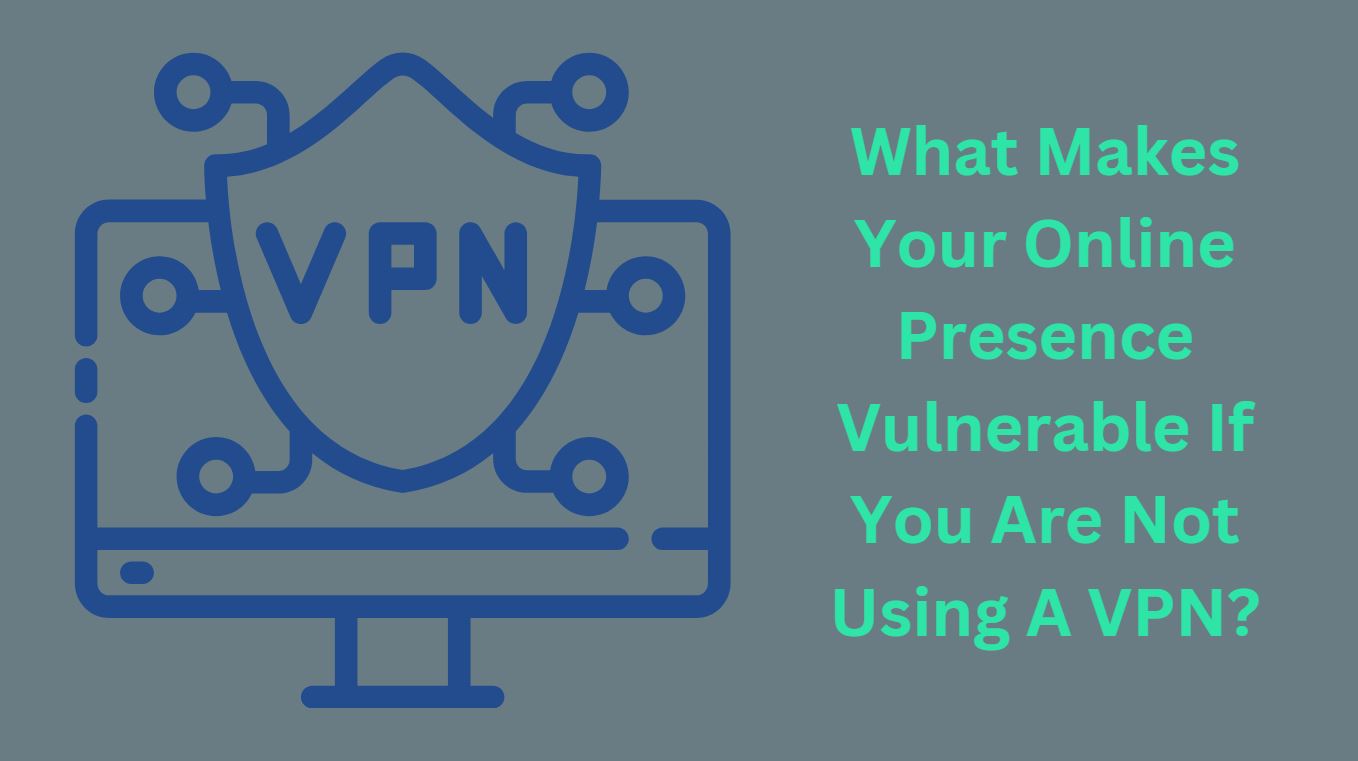- Likes
- Followers
- Followers
- Followers
- Subscribers
- Followers
- Members
- Followers
- Members
- Subscribers
- Subscribers
- Posts
- Comments
- Members
- Subscribe
What Makes Your Online Presence Vulnerable If You Are Not Using A VPN?

The World Wide Web has become a hub for all human activities. According to statistics, almost 80% of the developed world has access to the internet. We use it for communication, financial transactions, entertainment, education, travel and a lot more besides.
Organizations maintain entire operational infrastructures in cyberspace. Therefore, the data which flows over the digital airwaves is not only diverse but also valuable in a variety of aspects. It all depends on who is peeking into it.
Yes, as surprising as it may sound, as long as you are connected to the internet there are many entities tapping into general or even personal information which belongs to you. Privacy is a fundamental right of every individual and this act of digital spying is a cause of concern to many.
In order to understand how your online presence is vulnerable, we first have to look into how the internet works.
How does the Internet work?
The internet is a virtual neighbourhood. The houses are websites, applications and devices. Like a modern society, the residents of each house stay in contact with one another. They do this by sending little packets of data. Each of these packets contain several items but most importantly it has two IP addresses.
An Internet Protocol address or IP address is similar to a house address in the real world. Each packet sent over the internet contains the sender’s IP address and that of the receiver. The whole process resembles the delivery mediums we use on a day to day basis. This process of data being sent is initiated when you type a URL in your browser’s address bar and hit ‘Enter’.
The packet of data which originates from your computer is first received by your Internet Service Provider (ISP) and is then sent to the server of the website you were trying to access. This seems simple enough and considering it conventional, people are usually not bothered by it. This is where the problems begin.
What information can be obtained through IP tracking?
Posts You May Like
Ever since the US government passed the bill to end net neutrality last year, ISPs have the ability to regulate the internet at their will. They keep logs of each IP address, tracking entire browsing sessions. This is easy for them because each packet of data goes through them. They know where a request is coming from and where it is going. In case you are wondering, just the IP address is enough to reveal a lot of information about a user.
First and foremost, it gives away your exact location. Whether you are using a mobile device or a personal computer, the IP address can be used to track where you are in real time. Secondly, it only takes a few easily available tools and simple techniques to decipher a lot else from the users IP address. Also, its not just ISPs but a professional hacker can also intercept the packets of data being sent by your computer and things can begin to go downhill from there.
Potential uses of sensitive data
One of the least harmful uses of sensitive data, which ISPs can gather from your browsing information, is marketing profiling. It is a nuisance receiving spam emails or messages, pop-up ads or random snippets showing up while you are browsing and the fact that your data was used without permission. However, it is just not as dangerous as some of the other things that hackers can do when they gain access to some of your private information.
Unmasked or unprotected IP addresses can reveal your browsing history but if someone, like a professional hacker or even your internet service provider is persistent, they can use it to gain access to what you are doing once you are on a website. This means that the information you might be entering while making a funds transfer or purchasing something online becomes susceptible to theft. What hackers can do with this information does not need elaboration. Moreover, the information can also be used in false impersonation and cases of identity theft. All this is quite simple for anyone who can view your IP address.
How a VPN secures online presence?
Recent surveys have revealed that since mainstream companies like Facebook have had their servers hacked and millions of account credentials stolen, people are becoming cautious. This is a sensible move. Protecting your privacy during the time you spend online is imperative. People are now beginning to realize this. If you’re one of these people and want to know how you can keep yourself safe from cybersecurity threats, a good solution is using a VPN. A Virtual Private Network (VPN) acts as a decoy between the ISP and you.
Without a VPN, your data packets with the IP address of your device are sent directly to the website and the service provider. A VPN changes this route. Your packet is first sent to a secure server owned by the VPN and then to the website and ISP. This way, all that they see is the location of the VPN server and not yours. So, ultimately, they have no idea what you are doing and where you are doing it from. This means that you browse the internet anonymously and securely. There is no fear of being spied on. Well, only if you’re using a reliable VPN!
Conclusion
It’s true! Some VPN’s in the past have been caught doing exactly what they claim to stop, i.e. theft of personal information. To avoid this, it is recommended to use a credible Business VPN.
Image credit- Canva


Comments are closed.